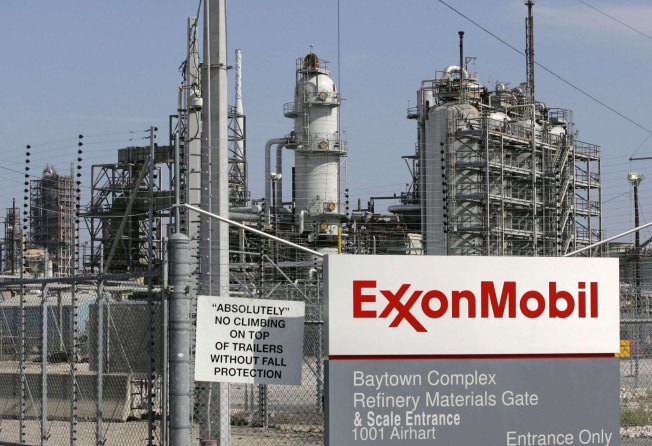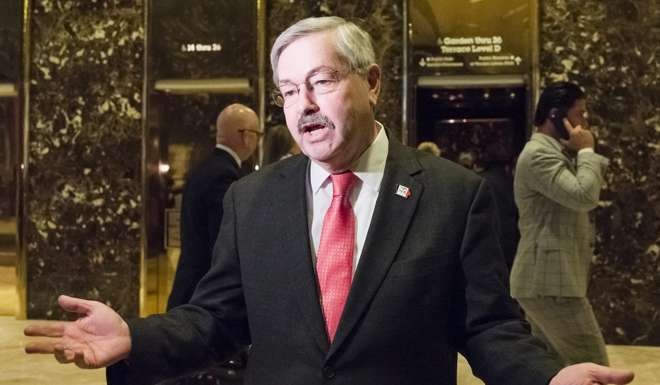Why an oil company chief executive might make a good American diplomat

The business of America is business. And now that president-elect Trump has nominated successful businessmen in all the important positions, instead of talking heads whose only skills are giving “soaring speeches”, we can finally test the proposition that business people can do a better job of running government.
This won’t be the first time that a government run by business people has been tried. Post-colonial Hong Kong’s business elites and government leaders fervently believed in an executive led government preferably dominated by business people and vested interests. Indeed, the title “Chief Executive” best suited a city that they felt existed for the sole reason of making money. A tycoon driven economy was the only logical way forward.
Politics is inefficient and wasteful; surely local people wouldn’t care. Today, about 20 years later, no one knows what kind of person has the critical political skills to lead Hong Kong. Neither our civil service nor business leaders are politically savvy enough to lead the city and satisfy Beijing at the same time. Maybe the shortfall lies in the poor skills cultivated by our town’s intellectually inbred, parochial and village-like business community.
Rex Tillerson, the chief executive of ExxonMobil, who negotiated the oil company’s contracts in Russia, has been nominated by America’s deal making president to act as his chief diplomat. You might think running Exxon is better experience for being Secretary of State than a mainstream politician. But subject to Senate confirmation, he will working for a president who has shown a penchant for making policy statements and pronouncements through 3am Twitter outbursts.
Most private sector executives don’t possess diplomatic skills because cutting a business deal isn’t international diplomacy. But natural resource executives are the exception. They have the difficult task of persuading officials in foreign governments to fulfil agreements without recourse to any enforceable legal remedy. They also must cope in a business highly driven by political risk. The skill sets of an international oil executive is vastly different to that of an investment banker or property developer.
Tillerson is one of Trump’s two astute nominations along with the appointment of Terry Branstad, the Republican governor of Iowa, as ambassador to China. Tillerson has an array of international experience, tremendous management capabilities and a deep background in situations where high level diplomatic skills and an ability to devise sophisticated strategies are required.
It is perfectly possible that Tillerson posseses the right skills for leading the State Department despite his lack of government experience. He certainly has more international experience than Mitt Romney. The issue is if Trump is choosing him for the right reasons.
Business diplomacy for oil deals is fine if your objectives are to win ideal oil deals. Whether he will be acting in America’s long term interests and most importantly for the benefit of the working class should be asked of his entire cabinet.

Tillerson may have a working relationship with President Putin, but anyone with experience in the Russian oil business is aware of the industry’s difficult trail of seized assets and failed joint ventures. That business relationship may not necessarily translate into diplomatic gains.
Realigning Washington’s relationship with Moscow to a more stable position is not necessarily risky. In terms of contemporary realpolitik many of America’s principal European allies have either become very confused and inward looking (UK) or are facing potentially volatile political changes in the months ahead (Germany, France).
Russian stocks are hovering at a record high and the ruble has advanced 16 per cent this year – the most since the fall of the Soviet Union. Ruble bonds are at their strongest position in more than three years. The carry trade, borrowing in US dollars and investing in ruble assets, returned 27 per cent this year. Russian optimism is anticipating a friendly Trump administration that will lift sanctions.
Everything that Donald Trump says or does in these early days of his administration is sufficient to trigger the need for xanax. However, a CEO of an international oil company, which operates in high risk conflict zones, might be the right person to provide stability to a relationship that will allow him to pursue his crucial domestic agenda.
Peter Guy is a financial writer and former international banker